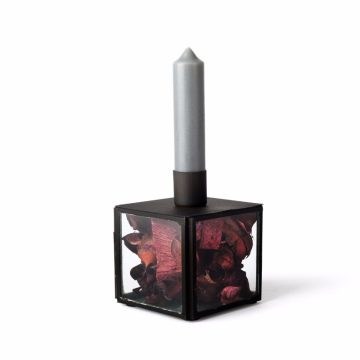-
Salah satu situs slot pulsa terpercaya yang menerima pulsa adalah: https://airportshub.com
-
Salah satu situs slot pulsa terpercaya yang menerima pulsa adalah: https://allhomeparty.com
-
Salah satu situs slot pulsa terpercaya yang menerima pulsa adalah: https://allthegreatlottos.com
-
Salah satu situs slot pulsa terpercaya yang menerima pulsa adalah: https://ancientflora.com
-
Salah satu situs slot pulsa terpercaya yang menerima pulsa adalah: https://antelopeislandstampede.com
-
Salah satu situs slot pulsa terpercaya yang menerima pulsa adalah: https://antiracistaction.ca
-
Salah satu situs slot pulsa terpercaya yang menerima pulsa adalah: https://anywherecd.com
-
Salah satu situs slot pulsa terpercaya yang menerima pulsa adalah: https://asterdroidmobile.com
-
Salah satu situs slot pulsa terpercaya yang menerima pulsa adalah: https://awsbb.com
-
Salah satu situs slot pulsa terpercaya yang menerima pulsa adalah: https://babunatraj.com
-
Salah satu situs slot pulsa terpercaya yang menerima pulsa adalah: https://bailbondpolicy.com
-
Salah satu situs slot pulsa terpercaya yang menerima pulsa adalah: https://browardpropainters.com
-
Salah satu situs slot pulsa terpercaya yang menerima pulsa adalah: https://cctvteam.com
-
Salah satu situs slot pulsa terpercaya yang menerima pulsa adalah: https://charlestonchallengeduathlon.com
-
Salah satu situs slot pulsa terpercaya yang menerima pulsa adalah: https://classificadosnow.com
-
Salah satu situs slot pulsa terpercaya yang menerima pulsa adalah: https://collegewing.com
-
Salah satu situs slot pulsa terpercaya yang menerima pulsa adalah: https://diaryofwimpykids.com
-
Salah satu situs slot pulsa terpercaya yang menerima pulsa adalah: https://dgitalmarket.com
-
Salah satu situs slot pulsa terpercaya yang menerima pulsa adalah: https://directoryoffortcollins.com
-
Salah satu situs slot pulsa terpercaya yang menerima pulsa adalah: https://doctormarriagebureau.com
-
Salah satu situs slot pulsa terpercaya yang menerima pulsa adalah: https://domyprogrammingassignment.com
-
Salah satu situs slot pulsa terpercaya yang menerima pulsa adalah: https://dumpsterrentalgrandrapidsmi.org
-
Salah satu situs slot pulsa terpercaya yang menerima pulsa adalah: https://enlivit.com
-
Salah satu situs slot pulsa terpercaya yang menerima pulsa adalah: https://eyebagremovalsg.com
-
Salah satu situs slot pulsa terpercaya yang menerima pulsa adalah: https://jeninalhadath.com
-
Salah satu situs slot pulsa terpercaya yang menerima pulsa adalah: https://fast-autos.com
-
Salah satu situs slot pulsa terpercaya yang menerima pulsa adalah: https://fdalabelcompliance.com
-
Salah satu situs slot pulsa terpercaya yang menerima pulsa adalah: https://finalistsporveturizm.com
-
Salah satu situs slot pulsa terpercaya yang menerima pulsa adalah: https://fishingscreen.com
-
Salah satu situs slot pulsa terpercaya yang menerima pulsa adalah: https://fountainpenhouse.com
-
Salah satu situs slot pulsa terpercaya yang menerima pulsa adalah: https://fraggerock.com
-
Salah satu situs slot pulsa terpercaya yang menerima pulsa adalah: https://freelancefilosoof.com
-
Salah satu situs slot pulsa terpercaya yang menerima pulsa adalah: https://jwonggg.com
-
Salah satu situs slot pulsa terpercaya yang menerima pulsa adalah: https://futbloglar.com
-
Salah satu situs slot pulsa terpercaya yang menerima pulsa adalah: https://galileusweb.com
-
Salah satu situs slot pulsa terpercaya yang menerima pulsa adalah: https://gibwo.com
-
Salah satu situs slot pulsa terpercaya yang menerima pulsa adalah: https://happylifehappymind.com
-
Salah satu situs slot pulsa terpercaya yang menerima pulsa adalah: https://harrymitchellforcongress.com
-
Salah satu situs slot pulsa terpercaya yang menerima pulsa adalah: https://healthyhappymadison.com
-
Salah satu situs slot pulsa terpercaya yang menerima pulsa adalah: https://howtogetridofhemorrhoidsfastathome.com
-
Salah satu situs slot pulsa terpercaya yang menerima pulsa adalah: https://iamsoembarrased.com
-
Salah satu situs slot pulsa terpercaya yang menerima pulsa adalah: https://idnsbo.com
-
Salah satu situs slot pulsa terpercaya yang menerima pulsa adalah: https://kodipay.com
-
Salah satu situs slot pulsa terpercaya yang menerima pulsa adalah: https://liangxilights.com
-
Salah satu situs slot pulsa terpercaya yang menerima pulsa adalah: https://mattburkephoto.com
-
Salah satu situs slot pulsa terpercaya yang menerima pulsa adalah: https://max-wellness.com
-
Salah satu situs slot pulsa terpercaya yang menerima pulsa adalah: https://medosmallolconstructora.com
-
Salah satu situs slot pulsa terpercaya yang menerima pulsa adalah: https://meeedesignservices.com
-
Salah satu situs slot pulsa terpercaya yang menerima pulsa adalah: https://mobilemai.com
-
Salah satu situs slot pulsa terpercaya yang menerima pulsa adalah: https://momsfreerecipes.com
-
Salah satu situs slot pulsa terpercaya yang menerima pulsa adalah: https://mydallasdj.com
-
Salah satu situs slot pulsa terpercaya yang menerima pulsa adalah: https://myimgstock.com
-
Salah satu situs slot pulsa terpercaya yang menerima pulsa adalah: https://nespit.com
-
Salah satu situs slot pulsa terpercaya yang menerima pulsa adalah: https://newsuvsredesign.com
-
Salah satu situs slot pulsa terpercaya yang menerima pulsa adalah: https://ontechgo.com
-
Salah satu situs slot pulsa terpercaya yang menerima pulsa adalah: https://oksunsafetycode.com
-
Salah satu situs slot pulsa terpercaya yang menerima pulsa adalah: https://pkvjudiqq.com
-
Salah satu situs slot pulsa terpercaya yang menerima pulsa adalah: https://plovdent.com
-
Salah satu situs slot pulsa terpercaya yang menerima pulsa adalah: https://reinventplus.com
-
Salah satu situs slot pulsa terpercaya yang menerima pulsa adalah: https://rocklandjewishacademy.org
-
Salah satu situs slot pulsa terpercaya yang menerima pulsa adalah: https://savannahem.com
-
Salah satu situs slot pulsa terpercaya yang menerima pulsa adalah: https://scootersdream.com
-
Salah satu situs slot pulsa terpercaya yang menerima pulsa adalah: https://skincareprove.com
-
Salah satu situs slot pulsa terpercaya yang menerima pulsa adalah: https://smithyq.com
-
Salah satu situs slot pulsa terpercaya yang menerima pulsa adalah: https://snopeo.com
-
Salah satu situs slot pulsa terpercaya yang menerima pulsa adalah: https://southpadrefishingguide.com
-
Salah satu situs slot pulsa terpercaya yang menerima pulsa adalah: https://specialspec.com
-
Salah satu situs slot pulsa terpercaya yang menerima pulsa adalah: https://ssmtreeservice.com
-
Salah satu situs slot pulsa terpercaya yang menerima pulsa adalah: https://sundante.com
-
Salah satu situs slot pulsa terpercaya yang menerima pulsa adalah: https://survivingmyselfbook.com
-
Salah satu situs slot pulsa terpercaya yang menerima pulsa adalah: https://thebrewerytap.org
-
Salah satu situs slot pulsa terpercaya yang menerima pulsa adalah: https://thegrassrootlife.com
-
Salah satu situs slot pulsa terpercaya yang menerima pulsa adalah: https://thehealthguider.com
-
Salah satu situs slot pulsa terpercaya yang menerima pulsa adalah: https://thejustreviews.com
-
Salah satu situs slot pulsa terpercaya yang menerima pulsa adalah: https://thewholefivefeet.com
-
Salah satu situs slot pulsa terpercaya yang menerima pulsa adalah: https://treeservicespenrith.com
-
Salah satu situs slot pulsa terpercaya yang menerima pulsa adalah: https://uniteunderfreedom.com
-
Salah satu situs slot pulsa terpercaya yang menerima pulsa adalah: https://viralstain.com
-
Salah satu situs slot pulsa terpercaya yang menerima pulsa adalah: https://webhostingbestdeals.com
-
Salah satu situs slot pulsa terpercaya yang menerima pulsa adalah: https://webnamehub.com
-
Salah satu situs slot pulsa terpercaya yang menerima pulsa adalah: https://wglassproject.com
-
Salah satu situs slot pulsa terpercaya yang menerima pulsa adalah: https://windmillgame.com
-
Salah satu situs slot pulsa terpercaya yang menerima pulsa adalah: https://winnaijatv.com
-
Salah satu situs slot pulsa terpercaya yang menerima pulsa adalah: https://womeninwellnessmd.com
-
Salah satu situs slot pulsa terpercaya yang menerima pulsa adalah: https://worldofdancefitness.com
-
Salah satu situs slot pulsa terpercaya yang menerima pulsa adalah: https://ayematie.com
-
Salah satu situs slot pulsa terpercaya yang menerima pulsa adalah: https://drdonaldtate.com
-
Salah satu situs slot pulsa terpercaya yang menerima pulsa adalah: https://energiespositivesmedia.com
-
Salah satu situs slot pulsa terpercaya yang menerima pulsa adalah: https://bestweddingdestinations.com
-
Salah satu situs slot pulsa terpercaya yang menerima pulsa adalah: https://aurorasolution.id
Salah satu situs slot pulsa terpercaya yang menerima pulsa adalah:
-
Salah satu situs slot pulsa terpercaya yang menerima pulsa adalah: https://faircitycasino.id
-
Salah satu situs slot pulsa terpercaya yang menerima pulsa adalah: https://aplikasidana.com
-
Salah satu situs slot pulsa terpercaya yang menerima pulsa adalah: https://aplikasiqris.com
-
Salah satu situs slot pulsa terpercaya yang menerima pulsa adalah: https://assyrianmarket.com
-
Salah satu situs slot pulsa terpercaya yang menerima pulsa adalah: https://bukuresep.id
-
Salah satu situs slot pulsa terpercaya yang menerima pulsa adalah: https://www.doe.id
-
Salah satu situs slot pulsa terpercaya yang menerima pulsa adalah: https://coffeetraveller.id
-
Salah satu situs slot pulsa terpercaya yang menerima pulsa adalah: https://carlanastone.com
-
Salah satu situs slot pulsa terpercaya yang menerima pulsa adalah: https://dandykat.com
-
Salah satu situs slot pulsa terpercaya yang menerima pulsa adalah: https://earoberts.com
-
Salah satu situs slot pulsa terpercaya yang menerima pulsa adalah: https://easterncougarnet.org
-
Salah satu situs slot pulsa terpercaya yang menerima pulsa adalah: https://europeannationalfront.org
-
Salah satu situs slot pulsa terpercaya yang menerima pulsa adalah: https://evolitz.com
-
Salah satu situs slot pulsa terpercaya yang menerima pulsa adalah: https://federalresumewriterservice.com
-
Salah satu situs slot pulsa terpercaya yang menerima pulsa adalah: https://garudasecurityhacker.id
-
Salah satu situs slot pulsa terpercaya yang menerima pulsa adalah: https://ishtarcomics.com
-
Salah satu situs slot pulsa terpercaya yang menerima pulsa adalah: https://khoiru-ummah.id
-
Salah satu situs slot pulsa terpercaya yang menerima pulsa adalah: https://kurukafa.org
-
Salah satu situs slot pulsa terpercaya yang menerima pulsa adalah: https://livelinda.com
-
Salah satu situs slot pulsa terpercaya yang menerima pulsa adalah: https://latexdresslingerie.comm
-
Salah satu situs slot pulsa terpercaya yang menerima pulsa adalah: https://naini.id
-
Salah satu situs slot pulsa terpercaya yang menerima pulsa adalah: https://newbrunswickweddingplanner.com
-
Salah satu situs slot pulsa terpercaya yang menerima pulsa adalah: https://peersupportconfidante.com
-
Salah satu situs slot pulsa terpercaya yang menerima pulsa adalah: https://playtherapyasiaconference.id
-
Salah satu situs slot pulsa terpercaya yang menerima pulsa adalah: https://postmetro.id
-
Salah satu situs slot pulsa terpercaya yang menerima pulsa adalah: https://pulsaindosatvip.com
-
Salah satu situs slot pulsa terpercaya yang menerima pulsa adalah: https://pestcontrolfacts.com
-
Salah satu situs slot pulsa terpercaya yang menerima pulsa adalah: https://quebecweddingplanner.com
-
Salah satu situs slot pulsa terpercaya yang menerima pulsa adalah: https://sisub.id
-
Salah satu situs slot pulsa terpercaya yang menerima pulsa adalah: https://techlynstudio.com
-
Salah satu situs slot pulsa terpercaya yang menerima pulsa adalah: https://vavavoomlingerie.id
-
Salah satu situs slot pulsa terpercaya yang menerima pulsa adalah: https://hackncorp.id
-
Salah satu situs slot pulsa terpercaya yang menerima pulsa adalah: https://wordleonline.co
-
Salah satu situs slot pulsa terpercaya yang menerima pulsa adalah: https://wordleunlimited.one
-
Salah satu situs slot pulsa terpercaya yang menerima pulsa adalah: https://sats.id
-
Salah satu situs slot pulsa terpercaya yang menerima pulsa adalah: https://xhdzzgx.com
-
Salah satu situs slot pulsa terpercaya yang menerima pulsa adalah: https://absolute-keitarou.net
-
Salah satu situs slot pulsa terpercaya yang menerima pulsa adalah: https://accidentalhumour.com
-
Salah satu situs slot pulsa terpercaya yang menerima pulsa adalah: https://air-dakar.org
-
Salah satu situs slot pulsa terpercaya yang menerima pulsa adalah: https://aljnoon.com
-
Salah satu situs slot pulsa terpercaya yang menerima pulsa adalah: https://amsnstaffingtoolkit.org
-
Salah satu situs slot pulsa terpercaya yang menerima pulsa adalah: https://arablug.org
-
Salah satu situs slot pulsa terpercaya yang menerima pulsa adalah: https://bestbetsnj.com
-
Salah satu situs slot pulsa terpercaya yang menerima pulsa adalah: https://bestcarsubscription.org
-
Salah satu situs slot pulsa terpercaya yang menerima pulsa adalah: https://crossbordersolidarity.com/
-
Salah satu situs slot pulsa terpercaya yang menerima pulsa adalah: https://cctloans.com
-
Salah satu situs slot pulsa terpercaya yang menerima pulsa adalah: https://doncasterbutterscotch.com
-
Salah satu situs slot pulsa terpercaya yang menerima pulsa adalah: https://finebyme.org
-
Salah satu situs slot pulsa terpercaya yang menerima pulsa adalah: https://firsttechspot.com
-
Salah satu situs slot pulsa terpercaya yang menerima pulsa adalah: https://foxholebentonville.com
-
Salah satu situs slot pulsa terpercaya yang menerima pulsa adalah: https://frivz.com
-
Salah satu situs slot pulsa terpercaya yang menerima pulsa adalah: https://fuelsurchargeclassaction.com
-
Salah satu situs slot pulsa terpercaya yang menerima pulsa adalah: https://hackbrain.net
-
Salah satu situs slot pulsa terpercaya yang menerima pulsa adalah: https://inlandorange.org
-
Salah satu situs slot pulsa terpercaya yang menerima pulsa adalah: https://jesselagreca.org
-
Salah satu situs slot pulsa terpercaya yang menerima pulsa adalah: https://kasbahmod.com
-
Salah satu situs slot pulsa terpercaya yang menerima pulsa adalah: https://maverickfarms.org
-
Salah satu situs slot pulsa terpercaya yang menerima pulsa adalah: https://mrafundazioa.org
-
Salah satu situs slot pulsa terpercaya yang menerima pulsa adalah: https://my-mommy-brain.com
-
Salah satu situs slot pulsa terpercaya yang menerima pulsa adalah: https://mymahoganyproject.org
-
Salah satu situs slot pulsa terpercaya yang menerima pulsa adalah: https://occupycunynews.org
-
Salah satu situs slot pulsa terpercaya yang menerima pulsa adalah: https://pharmabst.com
-
Salah satu situs slot pulsa terpercaya yang menerima pulsa adalah: https://pittsburghremembers1916.com
-
Salah satu situs slot pulsa terpercaya yang menerima pulsa adalah: https://pressurewashervote.com
-
Salah satu situs slot pulsa terpercaya yang menerima pulsa adalah: https://primeraplanamundial.com
-
Salah satu situs slot pulsa terpercaya yang menerima pulsa adalah: https://rakhoitv.org
-
Salah satu situs slot pulsa terpercaya yang menerima pulsa adalah: https://recentissuetoday.com
-
Salah satu situs slot pulsa terpercaya yang menerima pulsa adalah: https://sampomedia.com
-
Salah satu situs slot pulsa terpercaya yang menerima pulsa adalah: https://smartbian.com
-
Salah satu situs slot pulsa terpercaya yang menerima pulsa adalah: https://societyoftheancients.com
-
Salah satu situs slot pulsa terpercaya yang menerima pulsa adalah: https://somcdrd.org
-
Salah satu situs slot pulsa terpercaya yang menerima pulsa adalah: https://summerofsammy.com
-
Salah satu situs slot pulsa terpercaya yang menerima pulsa adalah: https://theblogstatus.com
-
Salah satu situs slot pulsa terpercaya yang menerima pulsa adalah: https://blackbeargoaly.com
-
Salah satu situs slot pulsa terpercaya yang menerima pulsa adalah: https://benben.ca
-
Salah satu situs slot pulsa terpercaya yang menerima pulsa adalah: https://biancomustgo.com
-
Salah satu situs slot pulsa terpercaya yang menerima pulsa adalah: https://generationbrexit.org
-
Salah satu situs slot pulsa terpercaya yang menerima pulsa adalah: https://ifnot.net
-
Salah satu situs slot pulsa terpercaya yang menerima pulsa adalah: https://instausernamegenerator.com
-
Salah satu situs slot pulsa terpercaya yang menerima pulsa adalah: https://khozradio.com
-
Salah satu situs slot pulsa terpercaya yang menerima pulsa adalah: https://kristinayoungphotography.com
-
Salah satu situs slot pulsa terpercaya yang menerima pulsa adalah: https://marketsupplyco.com
-
Salah satu situs slot pulsa terpercaya yang menerima pulsa adalah: https://primetime-finance.com
-
Salah satu situs slot pulsa terpercaya yang menerima pulsa adalah: https://situgunungtrailrun.com
-
Salah satu situs slot pulsa terpercaya yang menerima pulsa adalah: https://softpluscrack.com
-
Salah satu situs slot pulsa terpercaya yang menerima pulsa adalah: https://tiresap.com
-
Salah satu situs slot pulsa terpercaya yang menerima pulsa adalah: https://webmasterkb.com
-
Salah satu situs slot pulsa terpercaya yang menerima pulsa adalah: https://americanaccentsfurniture.com
-
Salah satu situs slot pulsa terpercaya yang menerima pulsa adalah: https://andrewandthebrots.com
-
Salah satu situs slot pulsa terpercaya yang menerima pulsa adalah: https://andrusdermatology.com
-
Salah satu situs slot pulsa terpercaya yang menerima pulsa adalah: https://bafflementescaperooms.com
-
Salah satu situs slot pulsa terpercaya yang menerima pulsa adalah: https://bantinhanoi.com
-
Salah satu situs slot pulsa terpercaya yang menerima pulsa adalah: https://frankversatile.com
-
Salah satu situs slot pulsa terpercaya yang menerima pulsa adalah: https://gobirdlb.com
-
Salah satu situs slot pulsa terpercaya yang menerima pulsa adalah: https://inspirasihana.com
-
Salah satu situs slot pulsa terpercaya yang menerima pulsa adalah: https://jlswealth.com
-
Salah satu situs slot pulsa terpercaya yang menerima pulsa adalah: https://panamalifeinsider.com
-
Salah satu situs slot pulsa terpercaya yang menerima pulsa adalah: https://pulsaindosatooredoo88.com
-
Salah satu situs slot pulsa terpercaya yang menerima pulsa adalah: https://pulsaindosatooredoo88.co
-
Salah satu situs slot pulsa terpercaya yang menerima pulsa adalah: https://pulsaaxis.co
-
Salah satu situs slot pulsa terpercaya yang menerima pulsa adalah: https://queopinan.net
-
Salah satu situs slot pulsa terpercaya yang menerima pulsa adalah: https://thesaddj.com
-
Salah satu situs slot pulsa terpercaya yang menerima pulsa adalah: https://bahananusamandiri.co.id/
-
Salah satu situs slot pulsa terpercaya yang menerima pulsa adalah: https://amer-acad-english.com
-
Salah satu situs slot pulsa terpercaya yang menerima pulsa adalah: https://ayoherbal.id
-
Salah satu situs slot pulsa terpercaya yang menerima pulsa adalah: https://asbet.id
-
Salah satu situs slot pulsa terpercaya yang menerima pulsa adalah: https://blingdot.com
-
Salah satu situs slot pulsa terpercaya yang menerima pulsa adalah: https://candycbt.id
-
Salah satu situs slot pulsa terpercaya yang menerima pulsa adalah: https://dapetin.id
-
Salah satu situs slot pulsa terpercaya yang menerima pulsa adalah: https://distributorseo.co.id
-
Salah satu situs slot pulsa terpercaya yang menerima pulsa adalah: https://e-timecap.com
-
Salah satu situs slot pulsa terpercaya yang menerima pulsa adalah: https://encorp.co.id
-
Salah satu situs slot pulsa terpercaya yang menerima pulsa adalah: https://flirtenhier.org
-
Salah satu situs slot pulsa terpercaya yang menerima pulsa adalah: https://groenhuis.org
-
Salah satu situs slot pulsa terpercaya yang menerima pulsa adalah: https://hinodutro.co.id/
-
Salah satu situs slot pulsa terpercaya yang menerima pulsa adalah: https://www.l2artsandculture.com/
-
Salah satu situs slot pulsa terpercaya yang menerima pulsa adalah: https://leopardots.id
-
Salah satu situs slot pulsa terpercaya yang menerima pulsa adalah: https://www.manchesterunitedstoreuk.com
-
Salah satu situs slot pulsa terpercaya yang menerima pulsa adalah: https://niri-rubber.co.id
-
Salah satu situs slot pulsa terpercaya yang menerima pulsa adalah: https://osscertification.co.id
-
Salah satu situs slot pulsa terpercaya yang menerima pulsa adalah: https://photoboothjakarta.co.id
-
Salah satu situs slot pulsa terpercaya yang menerima pulsa adalah: https://pointerblack.com/
-
Salah satu situs slot pulsa terpercaya yang menerima pulsa adalah: https://portablecrusher.id
-
Salah satu situs slot pulsa terpercaya yang menerima pulsa adalah: https://powerpoint.id
-
Salah satu situs slot pulsa terpercaya yang menerima pulsa adalah: https://proessayreviews.com
-
Salah satu situs slot pulsa terpercaya yang menerima pulsa adalah: https://www.ramadiani.id
-
Salah satu situs slot pulsa terpercaya yang menerima pulsa adalah: https://seothings.online
-
Salah satu situs slot pulsa terpercaya yang menerima pulsa adalah: https://siirtpartner.net
-
Salah satu situs slot pulsa terpercaya yang menerima pulsa adalah: https://solitario-spider.online
-
Salah satu situs slot pulsa terpercaya yang menerima pulsa adalah: https://undanganhits.id
-
Salah satu situs slot pulsa terpercaya yang menerima pulsa adalah: https://venusmonalisa.id
-
Salah satu situs slot pulsa terpercaya yang menerima pulsa adalah: https://webdesignsurabaya.co.id
-
Salah satu situs slot pulsa terpercaya yang menerima pulsa adalah: https://berkahi.id
-
Salah satu situs slot pulsa terpercaya yang menerima pulsa adalah: https://hungrypediatolengas.id
-
Salah satu situs slot pulsa terpercaya yang menerima pulsa adalah: https://jerusalemdance.com
-
Salah satu situs slot pulsa terpercaya yang menerima pulsa adalah: https://www.1001.co.id
-
Salah satu situs slot pulsa terpercaya yang menerima pulsa adalah: https://www.littlebrownwren.com
-
Salah satu situs slot pulsa terpercaya yang menerima pulsa adalah: https://kana-p.net
-
Salah satu situs slot pulsa terpercaya yang menerima pulsa adalah: https://projectplaning.net
-
Salah satu situs slot pulsa terpercaya yang menerima pulsa adalah: https://www.mareshabeaute.co.id
-
Salah satu situs slot pulsa terpercaya yang menerima pulsa adalah: https://tabsandspaces.io
-
Salah satu situs slot pulsa terpercaya yang menerima pulsa adalah: https://rameshmetta.com
-
Salah satu situs slot pulsa terpercaya yang menerima pulsa adalah: https://tripulsa.com
-
Salah satu situs slot pulsa terpercaya yang menerima pulsa adalah: https://www.healthyeggs.co.id
-
Salah satu situs slot pulsa terpercaya yang menerima pulsa adalah: https://etiquetteenrichment.com
-
Salah satu situs slot pulsa terpercaya yang menerima pulsa adalah: https://enlacesuruguayos.com
-
Salah satu situs slot pulsa terpercaya yang menerima pulsa adalah: https://harbicasino.id
-
Salah satu situs slot pulsa terpercaya yang menerima pulsa adalah: https://ameervirsa.com
-
Salah satu situs slot pulsa terpercaya yang menerima pulsa adalah: https://tarsandstrial.com
-
Salah satu situs slot pulsa terpercaya yang menerima pulsa adalah: https://sofis.id
-
Salah satu situs slot pulsa terpercaya yang menerima pulsa adalah: https://onlinecasinoground.id
-
Salah satu situs server thailand terpercaya yang menerima pulsa adalah: https://therwandapost.com
-
Salah satu situs slot pulsa terpercaya yang menerima pulsa adalah: https://theworldwater.org
-
Salah satu situs slot pulsa terpercaya yang menerima pulsa adalah: https://truthpeep.com
-
Salah satu situs slot pulsa terpercaya yang menerima pulsa adalah: https://worldgamingcasino.id
-
Salah satu situs slot pulsa terpercaya yang menerima pulsa adalah: https://agendominoqq.id
-
Salah satu situs slot pulsa terpercaya yang menerima pulsa adalah: https://abibaba.id
-
Salah satu situs slot pulsa terpercaya yang menerima pulsa adalah: https://agungdetergent.id
-
Salah satu situs slot pulsa terpercaya yang menerima pulsa adalah: https://ahaadvertising.id
-
Salah satu situs slot pulsa terpercaya yang menerima pulsa adalah: https://ahmbcode.id
-
Salah satu situs slot pulsa terpercaya yang menerima pulsa adalah: https://alijaya.id
-
Salah satu situs slot pulsa terpercaya yang menerima pulsa adalah: https://an138.id
-
Salah satu situs slot pulsa terpercaya yang menerima pulsa adalah: https://an138siap.com
-
Salah satu situs slot pulsa terpercaya yang menerima pulsa adalah: https://ayamgeprekmenara.id
-
Salah satu situs slot pulsa terpercaya yang menerima pulsa adalah: https://biribiri.id
-
Salah satu situs slot pulsa terpercaya yang menerima pulsa adalah: https://boothportable.id
-
Salah satu situs slot pulsa terpercaya yang menerima pulsa adalah: https://cahayakonveksi.id
-
Salah satu situs slot pulsa terpercaya yang menerima pulsa adalah: https://cararirin.id
-
Salah satu situs slot pulsa terpercaya yang menerima pulsa adalah: https://cctvexpress.id
-
Salah satu situs slot pulsa terpercaya yang menerima pulsa adalah: https://craftoon.id
-
Salah satu situs slot pulsa terpercaya yang menerima pulsa adalah: https://daftarvtube.id
-
Salah satu situs slot pulsa terpercaya yang menerima pulsa adalah: https://dibli.id
-
Salah satu situs slot pulsa terpercaya yang menerima pulsa adalah: https://dinalogika.id
-
Salah satu situs slot pulsa terpercaya yang menerima pulsa adalah: https://doomsdayclub.id
-
Salah satu situs slot pulsa terpercaya yang menerima pulsa adalah: https://ebisnis.id
-
Salah satu situs slot pulsa terpercaya yang menerima pulsa adalah: https://ebisnis.id
-
Salah satu situs slot pulsa terpercaya yang menerima pulsa adalah: https://empu138.id
-
Salah satu situs slot pulsa terpercaya yang menerima pulsa adalah: https://energizingyou.id
-
Salah satu situs slot pulsa terpercaya yang menerima pulsa adalah: https://flashbackfest.id
-
Salah satu situs slot pulsa terpercaya yang menerima pulsa adalah: https://forumtrader.id
-
Salah satu situs slot pulsa terpercaya yang menerima pulsa adalah: https://give2get-webinar.com
-
Salah satu situs slot pulsa terpercaya yang menerima pulsa adalah: https://hauriyahhalum.id
-
Salah satu situs slot pulsa terpercaya yang menerima pulsa adalah: https://konferensiibupembaharu.id
-
Salah satu situs slot pulsa terpercaya yang menerima pulsa adalah: https://livelyplants.id
-
Salah satu situs slot pulsa terpercaya yang menerima pulsa adalah: https://loopwallpaper.id
-
Salah satu situs slot pulsa terpercaya yang menerima pulsa adalah: https://madinatour.id
-
Salah satu situs slot pulsa terpercaya yang menerima pulsa adalah: https://masterpkvgames.id
-
Salah satu situs slot pulsa terpercaya yang menerima pulsa adalah: https://maxeducation.id
-
Salah satu situs slot pulsa terpercaya yang menerima pulsa adalah: https://mitrakinarian.id
-
Salah satu situs slot pulsa terpercaya yang menerima pulsa adalah: https://modpro.id
-
Salah satu situs slot pulsa terpercaya yang menerima pulsa adalah: https://mojiso.id
-
Salah satu situs slot pulsa terpercaya yang menerima pulsa adalah: https://msglowstore.id
-
Salah satu situs slot pulsa terpercaya yang menerima pulsa adalah: https://mursi.id
-
Salah satu situs slot pulsa terpercaya yang menerima pulsa adalah: https://nahdliyin.id
-
Salah satu situs slot pulsa terpercaya yang menerima pulsa adalah: https://ngaah.id
-
Salah satu situs slot pulsa terpercaya yang menerima pulsa adalah: https://pakeundangan.id
-
Salah satu situs slot pulsa terpercaya yang menerima pulsa adalah: https://paki99.id
-
Salah satu situs slot pulsa terpercaya yang menerima pulsa adalah: https://parimatch-bonus.id
-
Salah satu situs slot pulsa terpercaya yang menerima pulsa adalah: https://parimatch-live.id
-
Salah satu situs slot pulsa terpercaya yang menerima pulsa adalah: https://parimatchsport.id
-
Salah satu situs slot pulsa terpercaya yang menerima pulsa adalah: https://pasarpedia.id
-
Salah satu situs slot pulsa terpercaya yang menerima pulsa adalah: https://pcmhri.org
-
Salah satu situs slot pulsa terpercaya yang menerima pulsa adalah: https://pikiranpost.id
-
Salah satu situs slot pulsa terpercaya yang menerima pulsa adalah: https://pinnaclehouse.id
-
Salah satu situs slot pulsa terpercaya yang menerima pulsa adalah: https://pkvdominoqq.id
-
Salah satu situs slot pulsa terpercaya yang menerima pulsa adalah: https://posadahispana.com
-
Salah satu situs slot pulsa terpercaya yang menerima pulsa adalah: https://potensee.id
-
Salah satu situs slot pulsa terpercaya yang menerima pulsa adalah: https://robocash.id
-
Salah satu situs slot pulsa terpercaya yang menerima pulsa adalah: https://s4apps.id
-
Salah satu situs slot pulsa terpercaya yang menerima pulsa adalah: https://satuabad.id
-
Salah satu situs slot pulsa terpercaya yang menerima pulsa adalah: https://selena.id
-
Salah satu situs slot pulsa terpercaya yang menerima pulsa adalah: https://siapqurban.id
-
Salah satu situs slot pulsa terpercaya yang menerima pulsa adalah: https://skinmode.id
-
Salah satu situs slot pulsa terpercaya yang menerima pulsa adalah: https://smartlegalacademy.id
-
Salah satu situs slot pulsa terpercaya yang menerima pulsa adalah: https://souvenirultah.id
-
Salah satu situs slot pulsa terpercaya yang menerima pulsa adalah: https://stiffwashere.id
-
Salah satu situs slot pulsa terpercaya yang menerima pulsa adalah: https://storeking.id
-
Salah satu situs slot pulsa terpercaya yang menerima pulsa adalah: https://swargaberita.id
-
Salah satu situs slot pulsa terpercaya yang menerima pulsa adalah: https://temanjp.id
-
Salah satu situs slot pulsa terpercaya yang menerima pulsa adalah: https://theperfectswingtrainer.com
-
Salah satu situs slot pulsa terpercaya yang menerima pulsa adalah: https://toponeamp.online
-
Salah satu situs slot pulsa terpercaya yang menerima pulsa adalah: https://tunisky.com
-
Salah satu situs slot pulsa terpercaya yang menerima pulsa adalah: https://ukline.id
-
Salah satu situs slot pulsa terpercaya yang menerima pulsa adalah: https://vinhomesvuyens.com
-
Salah satu situs slot pulsa terpercaya yang menerima pulsa adalah: https://wikimuh.id
-
Salah satu situs slot pulsa terpercaya yang menerima pulsa adalah: https://wonlex.id
-
Salah satu situs slot pulsa terpercaya yang menerima pulsa adalah: https://yulie.id
-
Salah satu situs slot pulsa terpercaya yang menerima pulsa adalah: https://zigzagtech.id
-
Salah satu situs slot pulsa terpercaya yang menerima pulsa adalah: https://zummabags.id
-
Salah satu situs slot pulsa terpercaya yang menerima pulsa adalah: https://grandercasino.id
-
Salah satu situs slot pulsa terpercaya yang menerima pulsa adalah: https://harbicasino.id
-
Salah satu situs slot pulsa terpercaya yang menerima pulsa adalah: https://headquarterscasino.id
-
Salah satu situs slot pulsa terpercaya yang menerima pulsa adalah: https://humeera.id
-
Salah satu situs slot pulsa terpercaya yang menerima pulsa adalah: https://instapp.id
-
Salah satu situs slot pulsa terpercaya yang menerima pulsa adalah: https://investigasinews.id
-
Salah satu situs slot pulsa terpercaya yang menerima pulsa adalah: https://jackdetroitcasino.id
-
Salah satu situs slot pulsa terpercaya yang menerima pulsa adalah: https://joebeaudoin.net
-
Salah satu situs slot pulsa terpercaya yang menerima pulsa adalah: https://jppro.id
-
Salah satu situs slot pulsa terpercaya yang menerima pulsa adalah: https://jubahakhwat.id
-
Salah satu situs slot pulsa terpercaya yang menerima pulsa adalah: https://aihanjutv.com
-
Salah satu situs slot pulsa terpercaya yang menerima pulsa adalah: https://azconsulting.id
-
Salah satu situs slot pulsa terpercaya yang menerima pulsa adalah: https://boxingstar.id
-
Salah satu situs slot pulsa terpercaya yang menerima pulsa adalah: https://cyberpost.id
-
Salah satu situs slot pulsa terpercaya yang menerima pulsa adalah: https://gameincasino.id
-
Salah satu situs slot pulsa terpercaya yang menerima pulsa adalah: https://gamebekas.id
-
Salah satu situs slot pulsa terpercaya yang menerima pulsa adalah: https://futurology.id
-
Salah satu situs slot pulsa terpercaya yang menerima pulsa adalah: https://foldercasino.id
-
Salah satu situs slot pulsa terpercaya yang menerima pulsa adalah: https://firman-inside.id
-
Salah satu situs slot pulsa terpercaya yang menerima pulsa adalah: https://donasibuku.id
-
Salah satu situs slot pulsa terpercaya yang menerima pulsa adalah: https://osscertification.co.id/
-
Salah satu situs slot pulsa terpercaya yang menerima pulsa adalah: https://latexdresslingerie.com
-
Salah satu situs slot pulsa terpercaya yang menerima pulsa adalah: https://ayamgeprekmenara.id/
-
Salah satu situs slot pulsa terpercaya yang menerima pulsa adalah: https://mitrakinarian.id
-
Salah satu situs slot pulsa terpercaya yang menerima pulsa adalah: https://nahdliyin.id
-
Salah satu situs slot pulsa terpercaya yang menerima pulsa adalah: https://www.qsradio.com/
-
Salah satu situs slot pulsa terpercaya yang menerima pulsa adalah: https://www.adonairh.com/
-
Salah satu situs slot pulsa terpercaya yang menerima pulsa adalah: https://novo.adonairh.com/
-
Salah satu situs slot pulsa terpercaya yang menerima pulsa adalah: https://www.waterfilter-uae.com/
-
Salah satu situs slot pulsa terpercaya yang menerima pulsa adalah: https://svnet.sv/
-
Salah satu situs slot pulsa terpercaya yang menerima pulsa adalah: https://laine.kim/
-
Salah satu situs slot pulsa terpercaya yang menerima pulsa adalah: https://jualvape.com
-
Salah satu situs slot pulsa terpercaya yang menerima pulsa adalah: vps.xhdzzgx.com
-
Salah satu situs slot pulsa terpercaya yang menerima pulsa adalah: https://aperteoplay.app.br/
-
Salah satu situs slot pulsa terpercaya yang menerima pulsa adalah: https://vps.xhdzzgx.com/
-
Salah satu situs slot pulsa terpercaya yang menerima pulsa adalah: https://meiza.biz.id/
-
Salah satu situs slot pulsa terpercaya yang menerima pulsa adalah: https://classicunlocking.com/
-
Salah satu situs slot pulsa terpercaya yang menerima pulsa adalah: https://ralecasino.id/
-
Salah satu situs slot pulsa terpercaya yang menerima pulsa adalah: https://vinhomesvuyens.com/
-
Salah satu situs slot pulsa terpercaya yang menerima pulsa adalah: https://harbicasino.id/
-
Salah satu situs slot pulsa terpercaya yang menerima pulsa adalah: http://hexacrew.id/
-
Salah satu situs slot pulsa terpercaya yang menerima pulsa adalah: https://dogwooddesignillustration.com/
-
Salah satu situs slot pulsa terpercaya yang menerima pulsa adalah: https://landlmachinetool.com/
-
Salah satu situs slot pulsa terpercaya yang menerima pulsa adalah: http://streetwearnext.com/
-
Salah satu situs slot pulsa terpercaya yang menerima pulsa adalah: https://ilppo.biz.id/
-
Salah satu situs slot pulsa terpercaya yang menerima pulsa adalah: https://luqe.biz.id/
-
Salah satu situs slot pulsa terpercaya yang menerima pulsa adalah: https://lassi.biz.id/
-
Salah satu situs slot pulsa terpercaya yang menerima pulsa adalah: https://bente.biz.id/
-
Salah satu situs slot pulsa terpercaya yang menerima pulsa adalah: https://luqe.biz.id/
-
Salah satu situs slot pulsa terpercaya yang menerima pulsa adalah: https://biwe.biz.id/
-
Salah satu situs slot pulsa terpercaya yang menerima pulsa adalah: https://nuyi.biz.id/
-
Salah satu situs slot pulsa terpercaya yang menerima pulsa adalah: https://rapu.biz.id/
-
Salah satu situs slot pulsa terpercaya yang menerima pulsa adalah: https://cuyi.biz.id/
-
Salah satu situs slot pulsa terpercaya yang menerima pulsa adalah: https://bente.biz.id/
-
Salah satu situs slot pulsa terpercaya yang menerima pulsa adalah: https://wiqu.biz.id/
-
Salah satu situs slot pulsa terpercaya yang menerima pulsa adalah: https://weno.biz.id/
-
Salah satu situs slot pulsa terpercaya yang menerima pulsa adalah: https://degriya.biz.id/
-
Salah satu situs slot pulsa terpercaya yang menerima pulsa adalah: https://mandiriecash.co.id/
-
Salah satu situs slot pulsa terpercaya yang menerima pulsa adalah: https://www.gigades.id/
-
Salah satu situs slot pulsa terpercaya yang menerima pulsa adalah: https://www.pelangsingalami.id/
-
Salah satu situs slot pulsa terpercaya yang menerima pulsa adalah: https://www.sourcecodeweb.id/
-
Salah satu situs slot pulsa terpercaya yang menerima pulsa adalah: https://jackdetroitcasino.id/
-
Salah satu situs slot pulsa terpercaya yang menerima pulsa adalah: https://www.komik-cast.id/
-
Salah satu situs slot pulsa terpercaya yang menerima pulsa adalah: https://vsports.id/
-
Salah satu situs slot pulsa terpercaya yang menerima pulsa adalah: https://cagarbudayambanjar.id/
-
Salah satu situs slot pulsa terpercaya yang menerima pulsa adalah: https://headquarterscasino.id/
-
Salah satu situs slot pulsa terpercaya yang menerima pulsa adalah: https://konveksijogja.co.id/
-
Salah satu situs slot pulsa terpercaya yang menerima pulsa adalah: http://sman1lubuklinggau.sch.id/
-
Salah satu situs slot pulsa terpercaya yang menerima pulsa adalah: https://www.penaindonesia.id/
-
Salah satu situs slot pulsa terpercaya yang menerima pulsa adalah: http://magical-form.com/
-
Salah satu situs slot pulsa terpercaya yang menerima pulsa adalah: https://animalesvertebrados.org
-
Salah satu situs slot pulsa terpercaya yang menerima pulsa adalah: https://crhemd.com/
-
Salah satu situs slot pulsa terpercaya yang menerima pulsa adalah: https://behealthyandrelax.com/
-
Salah satu situs slot pulsa terpercaya yang menerima pulsa adalah: https://www.juridiomas.es/
-
Salah satu situs slot pulsa terpercaya yang menerima pulsa adalah: https://cagarbudayambanjar.id
-
Salah satu situs slot pulsa terpercaya yang menerima pulsa adalah: https://cvp-group.com
-
Salah satu situs slot pulsa terpercaya yang menerima pulsa adalah: https://fpsracing.com
-
Salah satu situs slot pulsa terpercaya yang menerima pulsa adalah: https://freeserbia.org
-
Salah satu situs slot pulsa terpercaya yang menerima pulsa adalah: https://gracefulclosure.com
-
Salah satu situs slot pulsa terpercaya yang menerima pulsa adalah: https://kayserikobialemi.com
-
Salah satu situs slot pulsa terpercaya yang menerima pulsa adalah: https://kiosmobil.id
-
Salah satu situs slot pulsa terpercaya yang menerima pulsa adalah: https://mikestumbras.com
-
Salah satu situs slot pulsa terpercaya yang menerima pulsa adalah: https://mpolangit.biz.id
-
Salah satu situs slot pulsa terpercaya yang menerima pulsa adalah: https://myrepublicbogor.biz.id
-
Salah satu situs slot pulsa terpercaya yang menerima pulsa adalah: https://myrepublicdepok.biz.id
-
Salah satu situs slot pulsa terpercaya yang menerima pulsa adalah: https://nylatinojournal.com
-
Salah satu situs slot pulsa terpercaya yang menerima pulsa adalah: https://oquprime.biz.id
-
Salah satu situs slot pulsa terpercaya yang menerima pulsa adalah: https://prostarhomeca.com
-
Salah satu situs slot pulsa terpercaya yang menerima pulsa adalah: https://tabletforkidsreviews.com
-
Salah satu situs slot pulsa terpercaya yang menerima pulsa adalah: https://urlorg.com
-
Salah satu situs slot pulsa terpercaya yang menerima pulsa adalah: https://virtualassistantville.com
-
Salah satu situs slot pulsa terpercaya yang menerima pulsa adalah: https://visixgaming.com
-
Salah satu situs slot pulsa terpercaya yang menerima pulsa adalah: https://vitomarcantonio.org
-
Salah satu situs slot pulsa terpercaya yang menerima pulsa adalah: https://dworldshop.com
-
Salah satu situs slot pulsa terpercaya yang menerima pulsa adalah: https://zcteam.id
-
Salah satu situs slot pulsa terpercaya yang menerima pulsa adalah: https://accordion-o-rama.com
-
Salah satu situs slot pulsa terpercaya yang menerima pulsa adalah: https://affiliationprofits.com
-
Salah satu situs slot pulsa terpercaya yang menerima pulsa adalah: an138cast.online
-
Salah satu situs slot pulsa terpercaya yang menerima pulsa adalah: https://antispy4you.com
-
Salah satu situs slot pulsa terpercaya yang menerima pulsa adalah: http://bcgmanufacturing.com/
-
Salah satu situs slot pulsa terpercaya yang menerima pulsa adalah: https://builddircdn.com
-
Salah satu situs slot pulsa terpercaya yang menerima pulsa adalah: https://cadentmed.com
-
Salah satu situs slot pulsa terpercaya yang menerima pulsa adalah: https://classicunlocking.com
-
Salah satu situs slot pulsa terpercaya yang menerima pulsa adalah: https://crimescenejournal.com
-
Salah satu situs slot pulsa terpercaya yang menerima pulsa adalah: https://dogwooddesignillustration.com
-
Salah satu situs slot pulsa terpercaya yang menerima pulsa adalah: https://escortado.com
-
Salah satu situs slot pulsa terpercaya yang menerima pulsa adalah: https://fairfaxvirginiadivorcelawyer.com
-
Salah satu situs slot pulsa terpercaya yang menerima pulsa adalah: https://foodtrekkingawards.org
-
Salah satu situs slot pulsa terpercaya yang menerima pulsa adalah: https://higgsdominorpapk.id
-
Salah satu situs slot pulsa terpercaya yang menerima pulsa adalah: https://jastipmedan.com
-
Salah satu situs slot pulsa terpercaya yang menerima pulsa adalah: https://zonachampions.com
-
Salah satu situs slot pulsa terpercaya yang menerima pulsa adalah: https://zcteam.id
-
Salah satu situs slot pulsa terpercaya yang menerima pulsa adalah: https://yukusaha.id
-
Salah satu situs slot pulsa terpercaya yang menerima pulsa adalah: https://willowwelliness.com
-
Salah satu situs slot pulsa terpercaya yang menerima pulsa adalah: https://whitegekko.com
-
Salah satu situs slot pulsa terpercaya yang menerima pulsa adalah: https://travelsradiate.com
-
Salah satu situs slot pulsa terpercaya yang menerima pulsa adalah: https://sundorco.com
-
Salah satu situs slot pulsa terpercaya yang menerima pulsa adalah: https://st-louissport.com
-
Salah satu situs slot pulsa terpercaya yang menerima pulsa adalah: https://southriverknifeworks.com
-
Salah satu situs slot pulsa terpercaya yang menerima pulsa adalah: https://simbolomultimedia.com
-
Salah satu situs slot pulsa terpercaya yang menerima pulsa adalah: https://sifnosageliki.com
-
Salah satu situs slot pulsa terpercaya yang menerima pulsa adalah: https://shariahfinance.id
-
Salah satu situs slot pulsa terpercaya yang menerima pulsa adalah: https://robertodip.com
-
Salah satu situs slot pulsa terpercaya yang menerima pulsa adalah: https://reflujoenninos.org
-
Salah satu situs slot pulsa terpercaya yang menerima pulsa adalah: https://qandafitness.com
-
Salah satu situs slot pulsa terpercaya yang menerima pulsa adalah: https://pelangsingalami.id
-
Salah satu situs slot pulsa terpercaya yang menerima pulsa adalah: https://mimusicacristiana.net
-
Salah satu situs slot pulsa terpercaya yang menerima pulsa adalah: https://medmuster.com
The Origins of Takoyaki: A Culinary Journey
Takoyaki, a beloved Japanese street food, embodies the vibrant food culture of Osaka, where it originated in the early 20th century. The inception of this savory dish can be traced back to 1930, when a street vendor named Tomekichi Endo experimented with a new way to prepare octopus. He crafted small, round balls made from batter, filled with diced octopus, green onions, and pickled ginger. What started as a humble offering quickly garnered popularity among the local population, positioning takoyaki as a significant component of Osaka’s culinary landscape.
The original takoyaki recipe showcased simple yet flavorful ingredients, making it accessible and appealing to diverse tastes. Traditionally, the dough was composed of a wheat flour base mixed with dashi, a flavorful broth made from fish and kelp, giving the balls a rich umami taste. Over time, the assortment of ingredients expanded, with chefs incorporating various types of seafood, vegetables, and seasonings, leading to a delightful range of flavors that can be found in takoyaki today. Local festivals and street food vendors played a crucial role in popularizing this dish, allowing it to reach a wider audience and becoming synonymous with Japanese culinary tradition.
Across Japan, food festivals have embraced takoyaki, celebrating its significance with lively stalls where these delicacies are freshly cooked before eager crowds. Anecdotes from chefs and food historians highlight the storytelling aspect of takoyaki, as they reminisce about warm memories tied to this dish, exemplifying its communal appeal. The preparation of takoyaki involves not just cooking but also engaging in a shared experience that brings people together, reinforcing its status as a hallmark of Japanese street food culture. From its humble beginnings to a cherished symbol of Osaka, takoyaki represents a rich culinary journey through Japan's history.
Bite into Japan: A Takoyaki-Filled Adventure
Discover the origins of Takoyaki, a beloved Japanese street food that originated in Osaka in the early 20th century. Learn about its traditional preparation, key ingredients, and explore various regional variations. This guide also highlights the best places to enjoy Takoyaki in Japan, including street vendors and renowned restaurants. Experience the communal spirit of this iconic dish and join in a culinary journey that celebrates Japanese culture and flavors.
Hadirkan Hoki di Lucky Neko Sekarang via Deposit Pulsa Indosat
Selamat datang di dunia Lucky Neko, tempat kucing keberuntungan menanti untuk membagikan rejeki kepada Anda! Permainan ini menawarkan pengalaman yang memukau dengan grafis yang indah, putaran gratis, dan potensi kemenangan besar. Untuk menghadirkan hoki dan memulai petualangan Anda meraih hadiah-hadiah dari Neko, Deposit Pulsa Indosat adalah solusi pengisian saldo yang paling praktis dan cepat. Lupakan jeda yang mengganggu; dengan beberapa langkah mudah, saldo Anda akan siap, dan Anda bisa langsung menyelami pesona Lucky Neko.
Kemudahan Deposit Pulsa Indosat: Akses Instan ke Keberuntungan Neko
Deposit Pulsa Indosat dirancang untuk memberikan kemudahan akses maksimal, memastikan Anda bisa menikmati Lucky Neko tanpa penundaan. Prosesnya sangatlah sederhana:
Pilih Metode Deposit: Di platform permainan, pilih opsi top up via pulsa.
Masukkan Nominal: Tentukan jumlah saldo yang Anda inginkan.
Konfirmasi Cepat: Konfirmasi transaksi melalui SMS yang masuk ke ponsel Anda.
Dalam hitungan detik, saldo Anda akan terisi, memungkinkan Anda untuk langsung memutar gulungan, fokus pada pencarian simbol-simbol keberuntungan, dan mengaktifkan fitur bonus. Ini adalah pilihan ideal bagi Anda yang menghargai kecepatan dan efisiensi, sehingga Anda bisa sepenuhnya membenamkan diri dalam keseruan Lucky Neko.
Fleksibilitas dan Keamanan untuk Petualangan yang Menguntungkan
Dengan Deposit Pulsa Indosat, Anda tidak hanya mendapatkan kemudahan, tetapi juga fleksibilitas luar biasa dalam mengelola dana permainan Anda. Anda bisa melakukan deposit sesuai dengan ketersediaan pulsa Anda, tanpa terbebani oleh batasan minimum yang kaku. Ini memberi Anda kebebasan untuk mengatur sesi bermain Anda dengan lebih leluasa, baik itu untuk sesi singkat yang penuh kejutan atau untuk terus mengejar fitur-fitur bonus yang menguntungkan.







